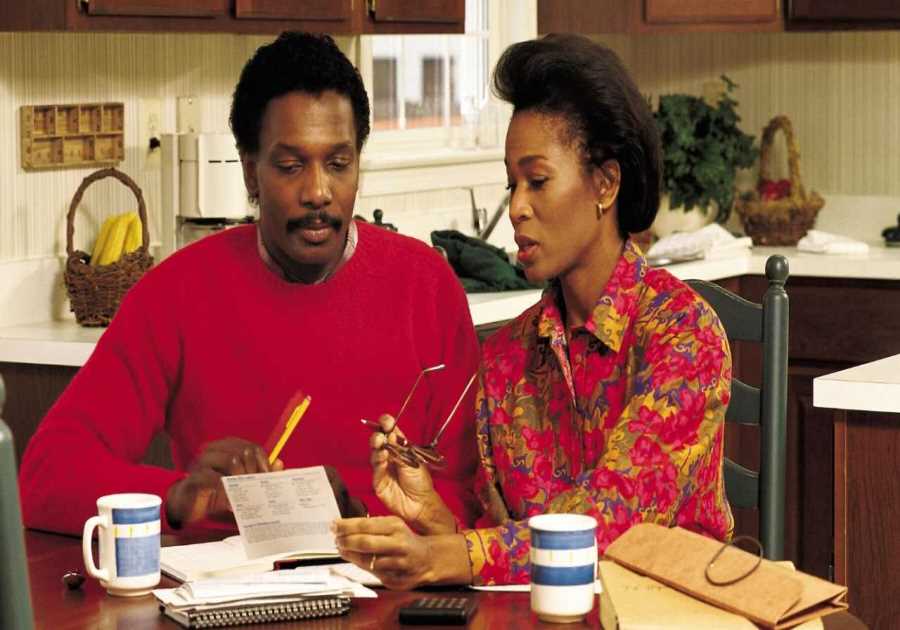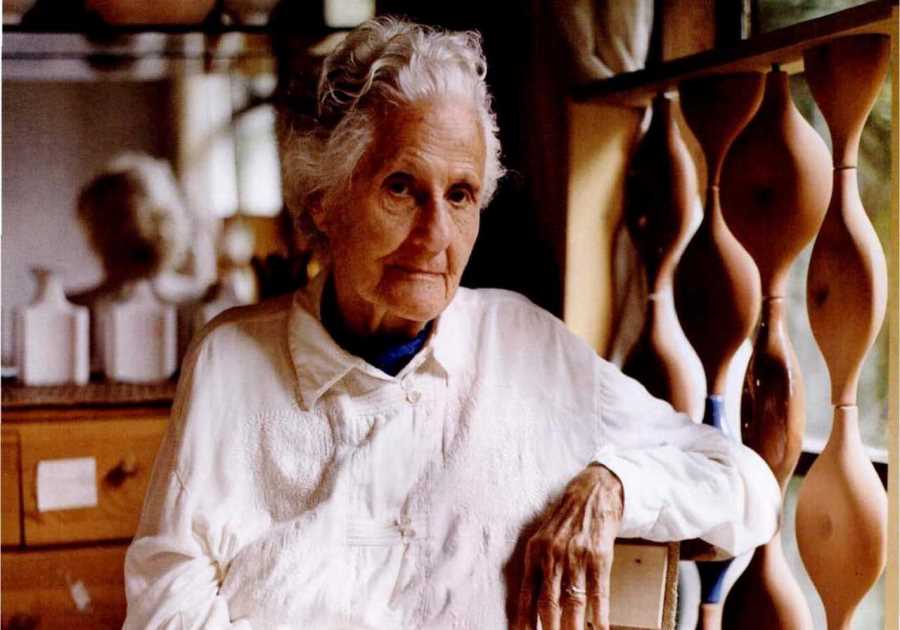An increasing number of first-time homebuyers are pooling their finances to purchase property outside of the traditional nuclear framework. But how do these "co-buying" setups actually function?
Welcome to Roommates Week, an exploration of the highs and lows of cohabitation.
In October 2021, the Wall Street Journal published an article highlighting the nontraditional route a growing number of first-time home buyers are following in an increasingly tight housing market (while also burdened by debt, stagnant wages, and an increasing cost of living). The piece, titled "Millennials Team Up to Fulfill the Dream of Homeownership," reported that the number of unrelated or unmarried people purchasing homes together—also known as "co-buyers"—rose 771 percent between 2014 and 2021.
Dwell’s executive editor Kate Dries is part of that statistic: In August 2020, she and her partner, Jackson, and sister, Emma, bought a home together in upstate New York. We spoke to the trio about how they navigated the whirlwind home-buying process with attention to everyone’s needs (and worries), as well as the logistics of their group finances and overall living setup. They also discuss their goals for turning the property into a "commune-lite experience." Our conversation has been edited and condensed for clarity.
Dwell: When did you start talking about buying a home between the three of you? What did those conversations involve?
Kate Dries: Before we begin, I want to acknowledge that there are a lot of things that happened with our home-buying process that are fairly abnormal, in that much of it happened through instinct and opportunity in a particularly unstable moment in our world’s history. That said, we started talking about buying a home separately—Jackson and I had been looking very, very casually for a few years. We hadn’t even considered that we could buy all together until a week before we saw our house in June 2020. At that point, all of our house-buying was fully hypothetical—in fact, Jackson and I had even said to each other a few weeks before that we knew we wouldn’t be buying for a long time because the world was so in flux.
But before we put the idea on ice, Jackson and I had honed in on roughly what would interest us: a lot of usable land (at least 10 acres) in the Hudson Valley, ideally with a structure to start to work with that we could eventually build more on. Through our discussions, he and I realized that buying something we could share with our community really appealed—a commune-lite experience, if you will. At the same time, Emma and I had always talked about wanting to live together, but I never thought I’d get to have both of those things together as an adult. When people ask about how it is living with your partner and your sister, I always say that you should ask them—I’m the one that lucked out!
Emma Dries: I was finishing up my MFA in Baltimore when Covid hit; I’d been planning to move out to Los Angeles after I graduated. Suddenly, with everything so uncertain, the idea of moving across the country and away from my immediate family wasn’t so appealing. At the same time, I’d burnt out on New York City; I loved my childhood downtown and my post-college years in Brooklyn, but I’d always sort of known I would leave. I wanted to build my vegetable garden, to work on a farm for a bit, to get a big dog. I started looking casually at rental apartments in Kingston and Hudson that spring.
Jackson Fratesi: I’d been looking around at houses with a buddy of mine years ago and then that sort of morphed into looking on my own, then looking with Kate. It felt more like a fun thing to do while we were upstate than anything that was really serious. Just before Covid was probably when it was starting to make the most sense financially, but once ‘showings over Zoom’ started, that was all out the window. Of course, once we saw this place everything was, very quickly, uh, back in the window?
It was fun to all learn together. None of us had done this before; talking to the realtor or our lawyers or parents and then googling things together instead of on our own, like looking up words we didn’t know. It’s a really anxious, uncertain time—everything feels so big and important and lots of money is at stake. We’d all have our things we got really worried about, but usually not all at the same time, so we could calm each other down. Even if we were all freaked out about, say, a mysterious buried oil tank poisoning all of our water, well…at least we were all freaking out together.
Were you all coming from a similar place financially? How did you determine parameters for costs?
KD: Emma and I lost our father suddenly a decade prior, and because of that, we each inherited money that I’d always bookmarked for some sort of home purchase. I looked at very small apartments in the city years earlier, before I met Jackson, but decided the time wasn’t right, not to mention that what I could buy alone wasn’t much.
ED: I had a low-paying publishing job out of college; I lived in Brooklyn with two and then four roommates. I could survive on that income but I also didn’t have student loans, and this was huge. Then, I went to a fully funded graduate program in Baltimore where the cost of living was very low. All of that meant that I could keep the money our dad left us in the stock market, where it appreciated. I made a rule for myself that I wouldn’t touch it until I absolutely needed to—and didn’t, until this house. I had enormous privilege in being able to make that choice.
JF: I was really fortunate to have been one of the leaders at a company that sold a few years before. It was really the first money I’d ever had to put away or sit and think about how to ‘use’ that was anything more than to pay rent or buy groceries or beer. But the market was so super-heated during the pandemic in upstate New York—you heard stories about all-cash, above-ask, sight-unseen offers and suddenly even a big down payment and a small mortgage seemed like it wasn’t going to get the job done. We found the house and started considering it so quickly, and we had to move fast. I was fortunate, again, that I could call my family and ask to borrow more, very quickly. That’s what really put us over the top—we all started in a great position, with real money to put behind this, but without their help it would have never gotten done.
Talk to us about the home-buying process.
KD: I can’t emphasize enough how much not being do much because of the pandemic allowed for things to develop. When we were visiting my mom upstate, our stepdad was on one of his regular e-biking trips and went past a For Sale sign at a nearby property with the agent who sold him and my mom their house. When he got home, he told us it looked interesting, and we mostly ignored him. Again, probably because of boredom, he called the agent. She said she hadn’t even put it online yet because realtors were just being allowed to do showings again, but proceeded to describe the entire place to him over the phone. A few hours later, we were touring it. On the car ride home, I turned to Jackson and said, "I think we should try to buy this house. We’re not going to get it, but it will be good practice, and what else are we doing right now?" The next day we were putting in an offer, and five days later—after having to increase it—it had been accepted.
JF: Once that offer was in, we were really off to the races. There was so much to do and so much to handle, and that was without having a mortgage. We were an all-cash offer—we had to be (and we could be!)—so we didn’t have to mess with any of that, which was huge, having heard others talk about that experience. But we had to get a lawyer, who was so helpful, and we had to think about whether we wanted to get a realtor. We eventually didn’t—we already found the house, did we really need one? Ultimately, even if we didn’t have our own realtor to ask questions to, our lawyer did most everything we needed, and having family who knew the area filled in the rest.
There were moments where communication between us and the seller felt really hard—was he being purposefully unhelpful? Was he being a jerk? Should we have gotten our own realtor who would move this along faster? Would it help if we wrote him a really nice letter about how wonderful we are and how excited we are about the house and the grand plans that are going to honor the property and its history? What was going on? At the end of the process we found out: he didn’t use email. So every quick question, every document we e-signed had to be printed at our realtor’s office and then driven an hour-and-a-half round trip to his house, when she could make the time. It turns out he was actually really nice. They both were! But it really slowed things down.
I set up the LLC for us. That was all straightforward and easy; we talked about getting our organizing documents all set up that would lay down the rules for if someone wanted to sell or we wanted to get out, and how equity was going to be split—we were gonna do this right, etc. Fast forward two and a half years and none of that paperwork has been set up, but a few weeks ago I did make a Google Sheet that has all of our equity stakes in it. Progress!
ED: I was obsessive about small details during the process, specifically about what our inspector brought up. I know his job is to point out what’s wrong with the house, but his fixation on trace levels of mold, or a theoretical buried oil tank, or our somewhat less-than-ideal soil grading around the foundation—and how it could lead to slight water issues—was literally keeping me up at night. But these fixes, I learned, are generally not a binary. We fixed some major stuff and the rest of the anxiety I eventually let go of. I do feel vindicated that in the past two years I’ve had several friends express anxiety about their own soil grading, so misery loves company, I guess.
Were there any major moments of disagreement between any of you during the co-buying process?
JF: Not that I really remember. We knew we wanted to buy the house. We knew we needed to replace the roof right away. I think we were really a united front. It helped that this was the first place we’d all looked at together; we didn’t have choices to fight over. It was ‘buy it or not,’ and we were all excited for option one.
How does the joint ownership model shake out financially? Did everyone put the same amount down? Do you hold equal shares?
JF: Money is hard, even with family (especially with family?), but we tried to make it as easy as possible. Because we got such a big chunk from my family, technically I came into this with more equity but we agreed right away that that wouldn’t matter unless we ended up selling. So we all have one-third ownership stake in the LLC (Emma actually apparently owns 34 percent through some interesting account decisions) and it’s not like we’ve even really done anything that’s required a vote. We track the money separately, just in case, but it’s never been a goal for us to even out the actual equity piece.
I also manage the bank account and make sure the credit cards are paid off. I’ve said like every month for the past three that I was going to ‘do an analysis’ of the rent we each pay to make sure it’s enough—we’ve had to top up the bank account a few times in the past. Anyway, I haven’t done that. Maybe next month.
So, how do you actually live at the property? Do you split time with a schedule, or is it more come and go as you please? Do you have a system for dividing up responsibilities?
KD: Emma lives at the house full time, and Jackson and I go back and forth between upstate and our Brooklyn rental. We text each other when we’ll be coming and going, but we also have two Google Calendars—one that’s shareable with friends and family who can see when we’ll be at the house and let us know if they want to join or come up when we’re not there, and one for house needs (if the plumber is coming, when to take out the trash). So far, Emma has never expressed displeasure at us saying we’re coming up—most of the logistics just center around if we have guests and there being enough space at any given time. I think it helps that we’re all more-the-merrier people. I actually wish other people would take us up on staying more of the time.
ED: Once the world opened back up a little bit, I realized that I wasn’t quite ready to retire to the country with my dog. I cannot stress enough how rural our area is. I love the quiet and solitude, but I also need a balance. I’m always happy to see Jackson and Kate when they show up!
When I’m home, I’m constantly trying to get friends to come up and hang out, especially during the week when it’s great to have a WFH buddy. Weirdly, due to all the quarantining and testing, the height of the pandemic felt very Victorian-era, go-spend-a-month-at-a-friend’s-estate vibes, so it was almost easier to get people up then. Now everyone is back to having a real social life, so I have to find new ways to entice them—come help me haul a bunch of garden soil doesn’t quite have the same effect anymore.
JF: We pretty naturally fell into our areas of focus. I handle the handyman-type stuff—I know just enough to rewire a light or do some basic carpentry; I’ve been building a daybed for about six months now. Emma is our chief outdoor operations officer—she’s worked on a farm before, she’s a great gardener. We had a beautiful garden last year and this year we’re expanding it to four big, raised beds. Kate is all things aesthetics, filling our house with amazing furniture, and making design decisions throughout. But we really all come together on big projects—while I built our pergola out back, Emma and Kate laid all this stone into a big patio. Kate really spearheaded painting our three-season porch a beautiful green and Emma and I got in there with rollers and brushes and we all three knocked it out. It works pretty well!
How does renovating work in terms of split labor, costs, and aesthetic decisions? Have there been any major moments of disagreement? How did you compromise?
KD: I think buying the house during Covid really set us up for success here. We had to have a lot of conversations about what we were comfortable with health-wise, which made it easier for us to talk about other potentially thorny issues together. For at least the first year, we had monthly meetings with agenda items assigned to specific people that we ticked off in a Google Doc; now we do that on an as-needed basis. I really recommend that for keeping communication organized and on track.
Renovations and decorations are probably where the most heated—but again, polite!—conversation has come up. Our first big one was deciding what roof and roofing company to go with; Jackson did a ton of cold-calling, we all researched pros and cons of materials, and then compared costs and vibes. (We put this in more Google Docs and spreadsheets, and basically repeated the process again recently when we were looking for a contractor for some additional work.) I would say I am the most aesthetically minded, which means I tend to want to spend on things that Jackson and Emma care less about. But we’re also in different financial situations, in that we all have different jobs and are at different ages and stages in our careers. A situation like ours only works if you’re willing to be extremely honest about what you want to spend and how. We don’t split everything equally. We each pay the same amount of ‘rent’ each month, but we have frank conversations about what we’re willing and able to put money into when it comes to additive projects. I don’t take what someone might want to spend personally; you try to figure out something that feels fair to everyone. Emma, for example, by nature of living at the house most of the time, does more consistent labor caring for it, which means if she’s paying less for a piece of furniture I really want to buy, that’s worth the money she might be putting in. You have to approach situations like ours assuming the best in people, and that you’re all working for a common goal. And, having someone disagree with you can often push you to figure out what you really want out of something and what actually makes sense.
ED: I have a really nice deal—I live in a lovely space for a very reasonable cost, which I’m grateful for especially because I’ve been building a freelance career for the last couple of years, which is not the most stable or lucrative. This means that a lot of the caretaking responsibilities, which tend to fall to me, I’m more than happy to do. Some of it I love—the vegetable garden is a great source of pride and joy. Some of it is more boring: setting up the trash service, scheduling our heating oil deliveries, waging war on the squirrels that have burrowed into our siding. But this also means I get more obsessive about the less glamorous stuff—for example, what happens when the boiler dies? Do we have enough cash earmarked for a crisis? What siding isn’t just going to look the best but will actually be the most durable and require the least upkeep? If Jackson and I lived alone together our house would probably just be full of furniture scavenged from the street and like 16 different coffee-making apparatuses, so I’m very happy that Kate has made our home beautiful. But yes, when I am particularly ambivalent about a rug or a piece of furniture, I feel comfortable mentioning I’d maybe want to chip in a little less.
Because Kate is the lynchpin, I guess the big question was the Jackson and me of it all. Would we get along? But I think Jackson and I are actually very similar, so sometimes it’s shaken out to us against Kate, which I’m sure she absolutely LOVES.
JF: Yeah, I feel like we manage it pretty well. There haven’t been any huge fights and we all have such a good relationship that I think there’s this sense that we’ll arrive at something. Everyone is pretty comfortable compromising. When we moved in, the light above the dining room table was this big black iron ring with a bunch of painted farm animals all over it. It was ugly but Emma and I thought it was hilarious and kitschy and Kate was just mortally offended by it. That it existed was an affront to her, to say nothing of the fact that it existed in her house she was trying to make beautiful. We’ve now replaced it, (Kate found an amazing glass fixture in a really cool orange that was shipped from Eastern Europe), but I’ll never forget that crazy farm animal light fixture. Mostly because I didn’t let Kate throw it out and it’s now hanging in my wood shop. But also because it was such a good symbol of our differing approaches to the house.
Down the line, what do you want your property to look like, and how do you want it to function?
KD: What’s been interesting to me is how many people we meet who find our situation unique, which, I guess for our class and race, it is, though in actuality, those numbers are shifting and have been for some time. There’s so much about what we’ve done that other people might not be able to replicate, the main one being the money and resources to set it up in the first place, but what’s repeatable is, as cheesy as it sounds, sharing more—the value of having open, honest conversations with others about money, how you want to live your life, and how you can do that communally. I’ve never considered the traditional Americanized vision of an insular family a particularly sustainable model, and having gone through this process of spreading resources across more than just two people, I feel even less wedded to it now. Our dream is to have this house and land be available for other people who might not ever be able to buy the way we were.
I think a lot of this goes back to my parents, and living in the city: they were artists and writers, and their lifestyles were only sustainable because of the low cost of living our home provided. We know lots of creatives for whom making life enjoyable in New York will likely always be a challenge. So our long-term goal is to have live/work space that others can come up and use for lengthy periods of time, and have this land give back as much as it can.
ED: I love the idea of carving out space for an artist or writers residency on the property. Also, having grown up and spent much of my life in cities, I understand how much larger my carbon footprint is now, living in a house and needing to drive everywhere. We have tried to make new decisions about house purchases with the environment in mind, like our electric stove. Even though I know corporations are to blame, blah blah, I would like to invest in solar when we’re able to, and maybe a heat pump. Also, chickens.
JF: I have a complicated relationship with money. Haha, okay see ya later. Just kidding. I have a complicated relationship with money and going from not really having much to suddenly getting this windfall and for the first time really asking my family for some and getting it felt weird! So buying a house, for me, was an alternative to just letting cash sit in a savings account or the stock market or whatever. I much preferred using it in a way that is cool for me (I love this house and having it so much) but also making it a place where our friends and family could come together. That’s so much better than buying a bond with a really good 10-year return.
Then, yeah, we’ve got the land and I’d love to build more. I have a doc going of all sorts of cool images I see and houses and spaces that I’m inspired by. Kate and I were talking recently about a building that might, especially in the context of the Hudson Valley, look inspired by a log barn on the outside, but then the inside has lots of big spaces really influenced by the loft that Kate and Emma grew up in, where lots of people can get together, and that give us flexibility going forward on how the space is used. If we need to build walls, we can always do that. But who knows what we’ll want, what we’ll need, what those around us will want and need in five years, in 10. I feel fortunate to be in the position to even be thinking about that.
Related Reading:
In Zurich, a New Mixed-Use Development Takes Some of Its Inspiration From Former Squatters
‘I Will Die Here’: A Conversation With My Mom About Her East Village Apartment of 27 Years
Read More
By: Sarah Buder
Title: What It’s Really Like to Own a Home Between Three People
Sourced From: www.dwell.com/article/what-its-really-like-to-own-a-home-between-three-people-0c1310e8
Published Date: Tue, 02 May 2023 16:25:33 GMT
Did you miss our previous article...
https://trendinginbusiness.business/real-estate/how-to-organize-a-fridge-according-to-a-professional-organizer
.png)





